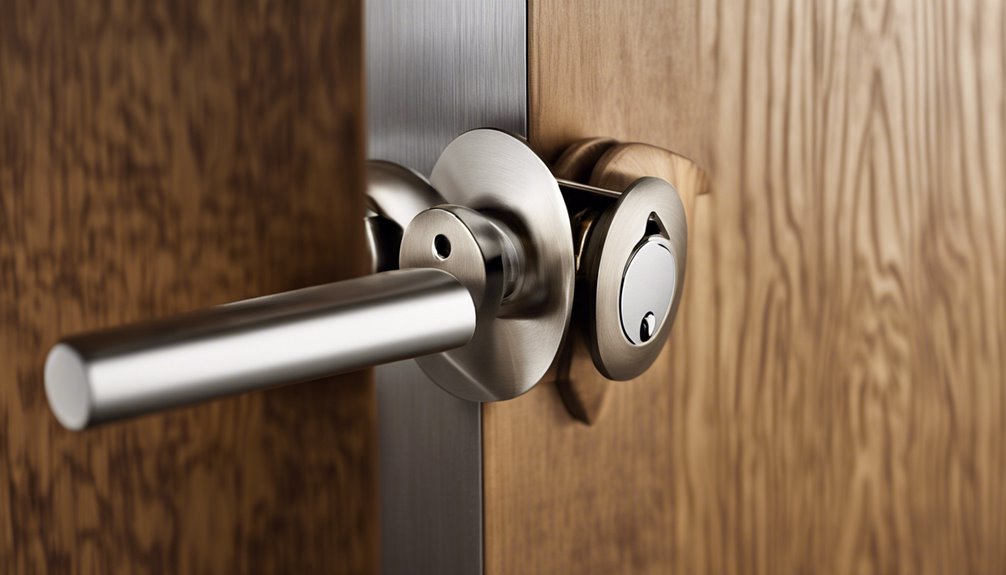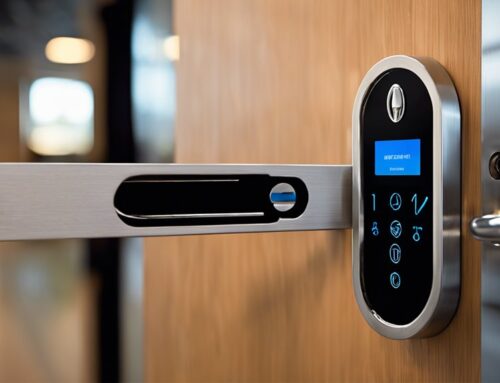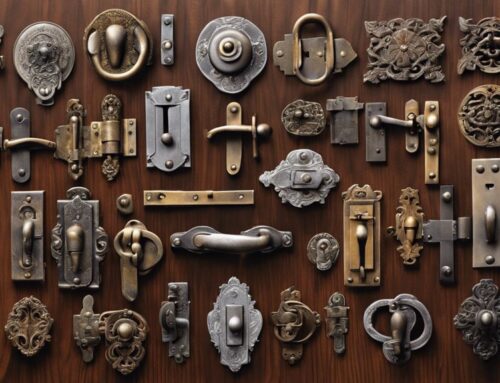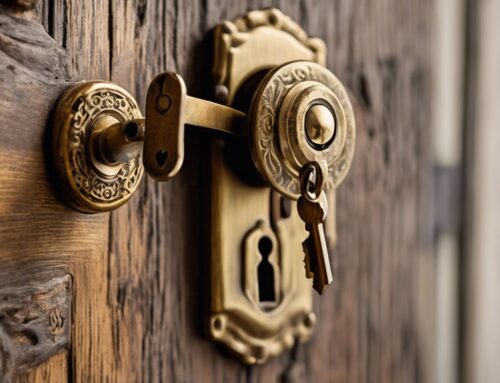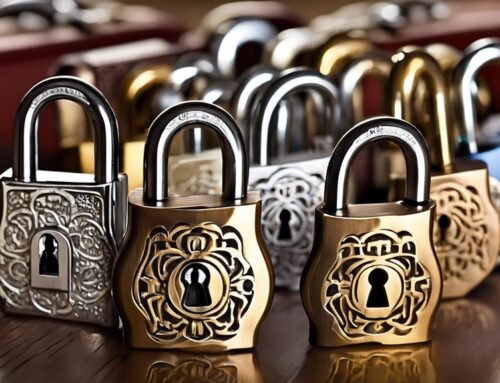While traditional locks rely on mechanical components that can be easily compromised, magnetic keyed locks promise a unique blend of security and simplicity. You're likely aware of the increasing concerns around unauthorized access and the need for reliability in locking mechanisms. These innovative locks, utilizing unique magnetic keys, invite a complex discussion about their effectiveness in safeguarding your property. What makes them stand out in an era of evolving security technologies, and are they truly worth considering for your specific needs?
Key Takeaways
- Magnetic keyed locks offer enhanced durability and wear resistance, making them suitable for high-traffic areas.
- Their unique magnetic keys significantly reduce the risk of unauthorized duplication.
- They operate without complex pins, decreasing vulnerabilities to picking and bumping.
- Installation is straightforward, and minimal maintenance is required due to reduced dust interference.
- These locks provide high tampering resistance, though they may be affected by strong magnetic fields.
Overview of Magnetic Keyed Locks
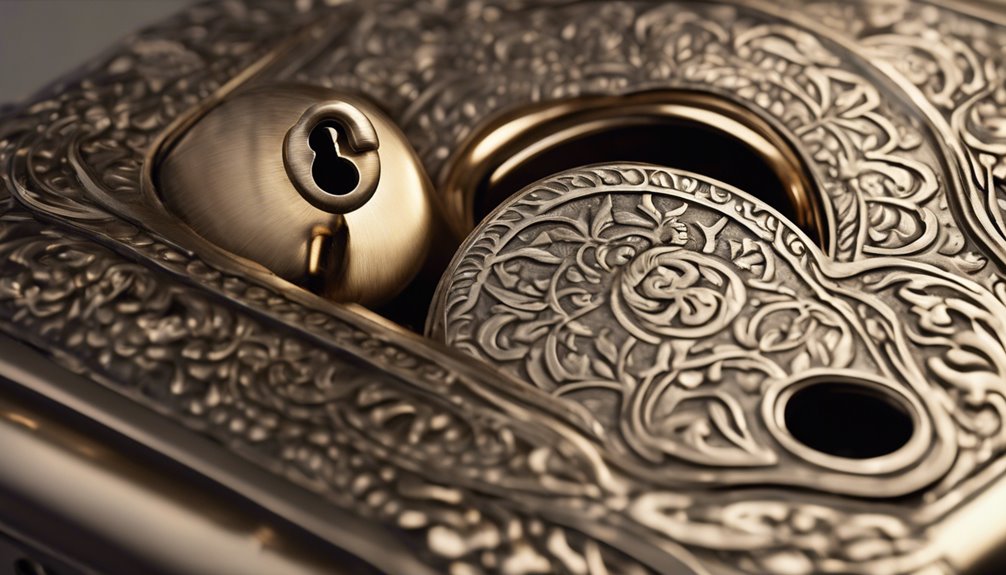
Magnetic keyed locks represent a sophisticated evolution in security technology, as they utilize magnetic fields to control locking mechanisms.
Unlike traditional locks, which use mechanical components to engage the lock, magnetic locks rely on the principle of magnetism. This innovation provides enhanced durability and resistance to wear, making these locks suitable for high-traffic areas.
The complexity of the magnetic field appreciably reduces the risks of picking or bumping compared to conventional keys. You'll find that these locks often integrate seamlessly with access control systems, allowing for both convenience and heightened security.
Furthermore, their designs accommodate various applications, making them versatile solutions in residential, commercial, and industrial settings. Understanding this technology deepens your appreciation for modern security solutions.
Security Features of Magnetic Locks
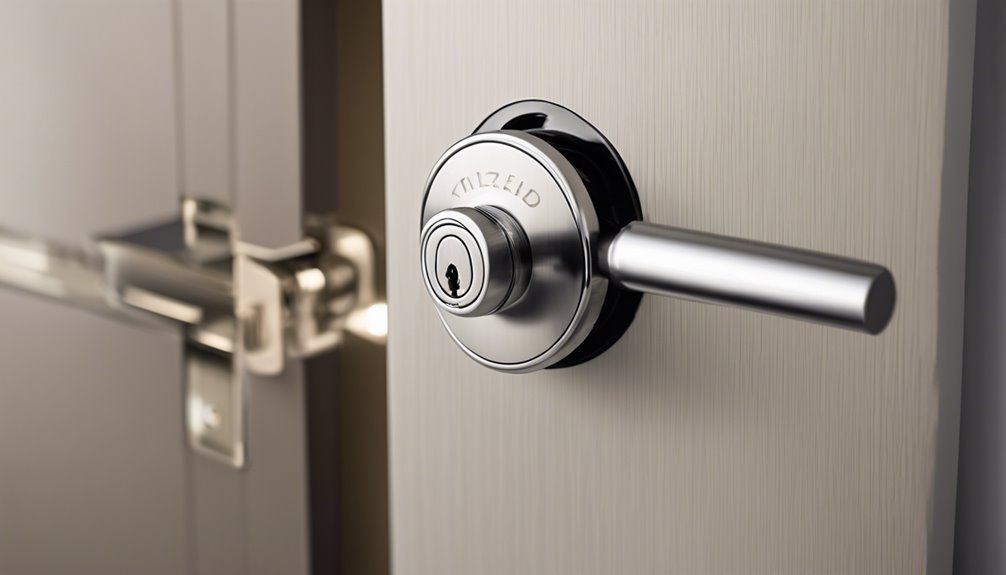
While exploring the security features of magnetic locks, it's crucial to recognize their advanced mechanisms that greatly enhance protection.
These locks often utilize a unique magnetic key, which notably reduces the risk of unauthorized duplication. Additionally, the locking mechanism is resistant to traditional manipulation techniques, such as bumping or picking, as it relies on magnetism rather than complex pin configurations.
Many magnetic locks also incorporate features like automatic locking and status indicators, providing real-time feedback on security status. Moreover, their durability against environmental factors guarantees sustained performance over time.
Functionality of Magnetic Keyed Locks
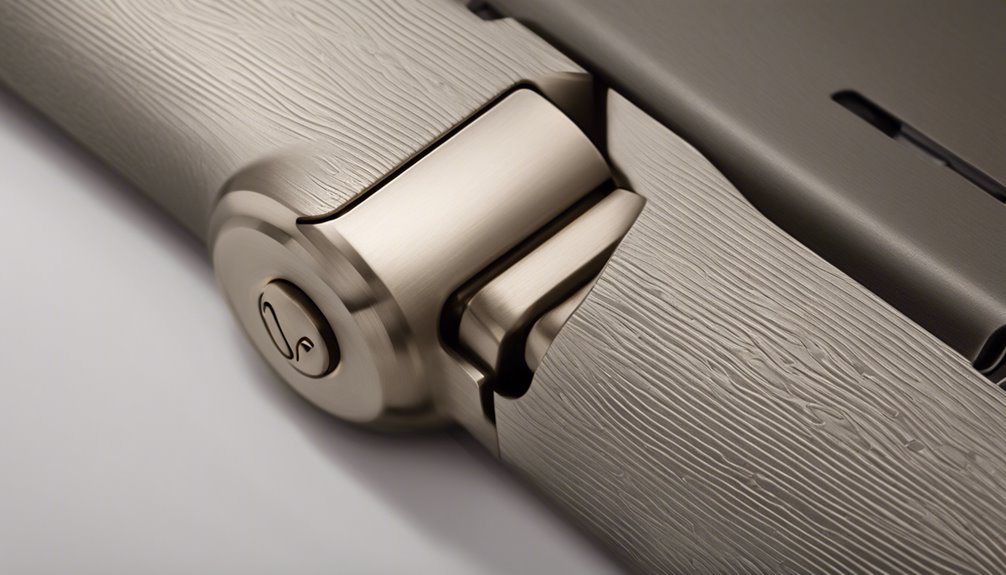
The innovative technology behind magnetic keyed locks guarantees they operate with a high level of efficiency and reliability. When you insert a magnetic key, its specific arrangement of magnets interacts with the lock's internal components, facilitating a seamless entry.
This design minimizes wear and tear, enhancing longevity compared to traditional mechanical locks. You'll also notice the absence of complex pins, reducing the opportunities for lock-picking.
Furthermore, these locks often feature a straightforward installation process, making them user-friendly. Maintenance is minimal, as dust and debris are less likely to impede their functionality.
Understanding these aspects allows you to appreciate how magnetic keyed locks combine advanced technology and practicality, offering a robust solution for secure access in various settings.
Comparison With Electromagnetic Locks
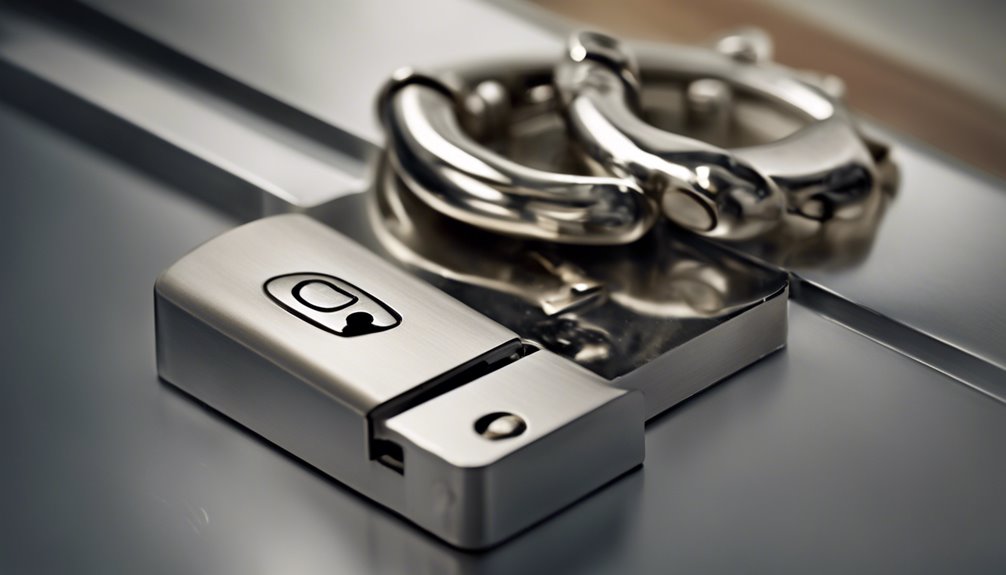
When considering security solutions, understanding the differences between magnetic keyed locks and electromagnetic locks is essential for making an informed choice. Both serve distinct purposes, but they've significant differences that impact their functionality and security level.
- Physical Mechanism: Magnetic keyed locks use a physical key, while electromagnetic locks operate through electric currents.
- Power Dependency: Electromagnetic locks are reliant on a continuous power supply, whereas magnetic locks function independently of power. This independence can mitigate risks associated with low-cost locksmith services, as these locks are less likely to be compromised if power is lost.
- Installation Versatility: Magnetic locks can be easier to install in various settings compared to the often complex installations of electromagnetic systems.
- Cost Implications: Generally, magnetic keyed locks tend to be more cost-effective both in purchase and maintenance.
- Security Considerations: It is crucial to evaluate the pros and cons of different lock types to ensure the chosen system meets security needs effectively.
Advantages and Limitations of Magnetic Locks
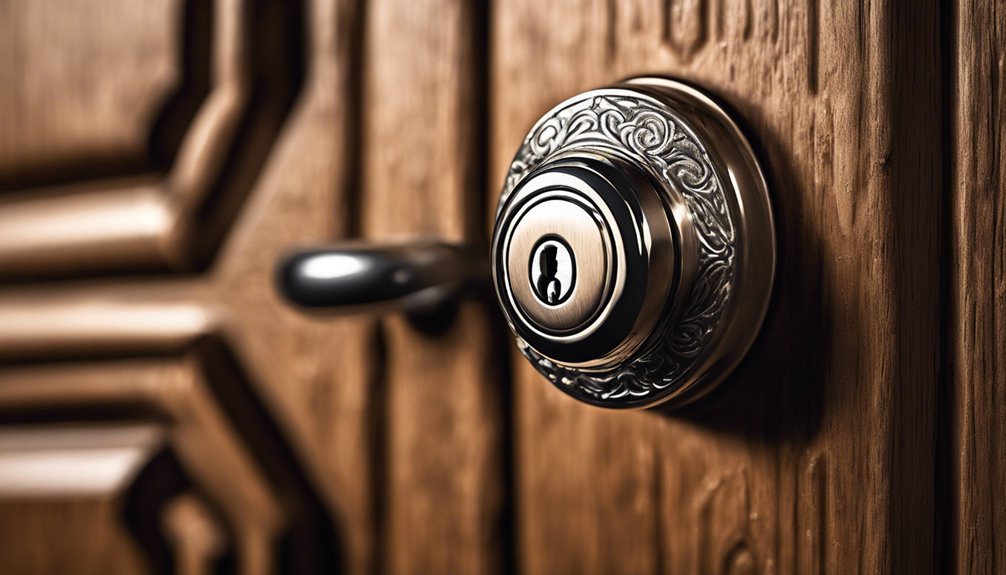
Although magnetic locks offer several advantages, they also come with limitations that users should consider. One key benefit is their high resistance to tampering due to their electronic design, enhancing security. In addition, the installation process is usually straightforward, making them a practical choice for many applications.
However, these locks often depend on a consistent power supply, leaving them vulnerable during power outages. Moreover, their sensitivity to magnetic fields can result in accidental release if exposed to strong magnets.
Finally, while magnetic locks provide excellent security, their cost may be higher than traditional locking mechanisms, impacting budget-conscious projects. Weighing these advantages and limitations will help you make informed decisions about integrating magnetic locks into your security strategy.
Frequently Asked Questions
How Do I Maintain a Magnetic Keyed Lock?
To maintain a magnetic keyed lock, regularly inspect it for dirt or debris that might hinder its operation.
Clean the lock with a soft cloth, avoiding harsh chemicals.
Lubricate the key slot and moving parts with a silicone-based lubricant to prevent wear.
Check the magnetic components for alignment and functionality, ensuring they engage smoothly.
Finally, test the key and lock mechanism frequently to guarantee peak performance and address any issues immediately.
What Common Applications Use Magnetic Keyed Locks?
You'll find magnetic keyed locks used in various applications, particularly where security and ease of use are paramount.
They're common in commercial properties, such as offices and retail stores, providing access control without the wear of traditional keys.
Additionally, you might see them in residential settings for garages or gates, offering both convenience and enhanced security.
Their functionality makes them ideal for environments requiring quick access while maintaining a reliable locking mechanism.
Are Magnetic Keys Compatible With Other Lock Types?
While magnetic keys are designed for specific locking systems, they typically aren't compatible with traditional lock types.
About 30% of businesses using electronic access control systems prefer magnetic locks for their ease of use and security.
However, attempting to merge different lock technologies can compromise effectiveness.
Compatibility largely hinges on the technology in place; therefore, understanding these nuances is essential if you want to enhance security measures effectively.
Can Magnetic Locks Be Used Outdoors?
Yes, you can use magnetic locks outdoors, but you need to take into account certain factors.
Make sure the locks you choose are specifically designed for exterior use and are weather-resistant.
Since magnetic locks rely on a power supply, reflect on the accessibility of power sources in outdoor settings.
Additionally, contemplate the potential for interference from environmental elements or physical obstructions, which may affect their functionality and reliability over time.
Proper installation is essential for peak performance.
How Do I Know if My Key Is Magnetic?
To determine if your key is magnetic, examine its material. If it's made from ferrite, nickel, or cobalt, it likely contains magnetic properties.
You can test it by bringing a magnet close; if the magnet sticks, your key's magnetic. Alternatively, check for any labeling or documentation that specifies its magnetic characteristics.
Understanding your key's composition is key to determining its functionality and compatibility with locking mechanisms.
Conclusion
In the world of locks, magnetic keyed locks stand out as the overachievers, effortlessly keeping intruders at bay while making traditional locks look like they're still trying to figure out how to use a key. Sure, they might not be as flashy as an electromagnetic lock, but who needs drama? With their unique security features and low maintenance, these locks show us that sometimes, simplicity is the ultimate sophistication—unless, of course, you prefer a good old-fashioned lock picking game!

